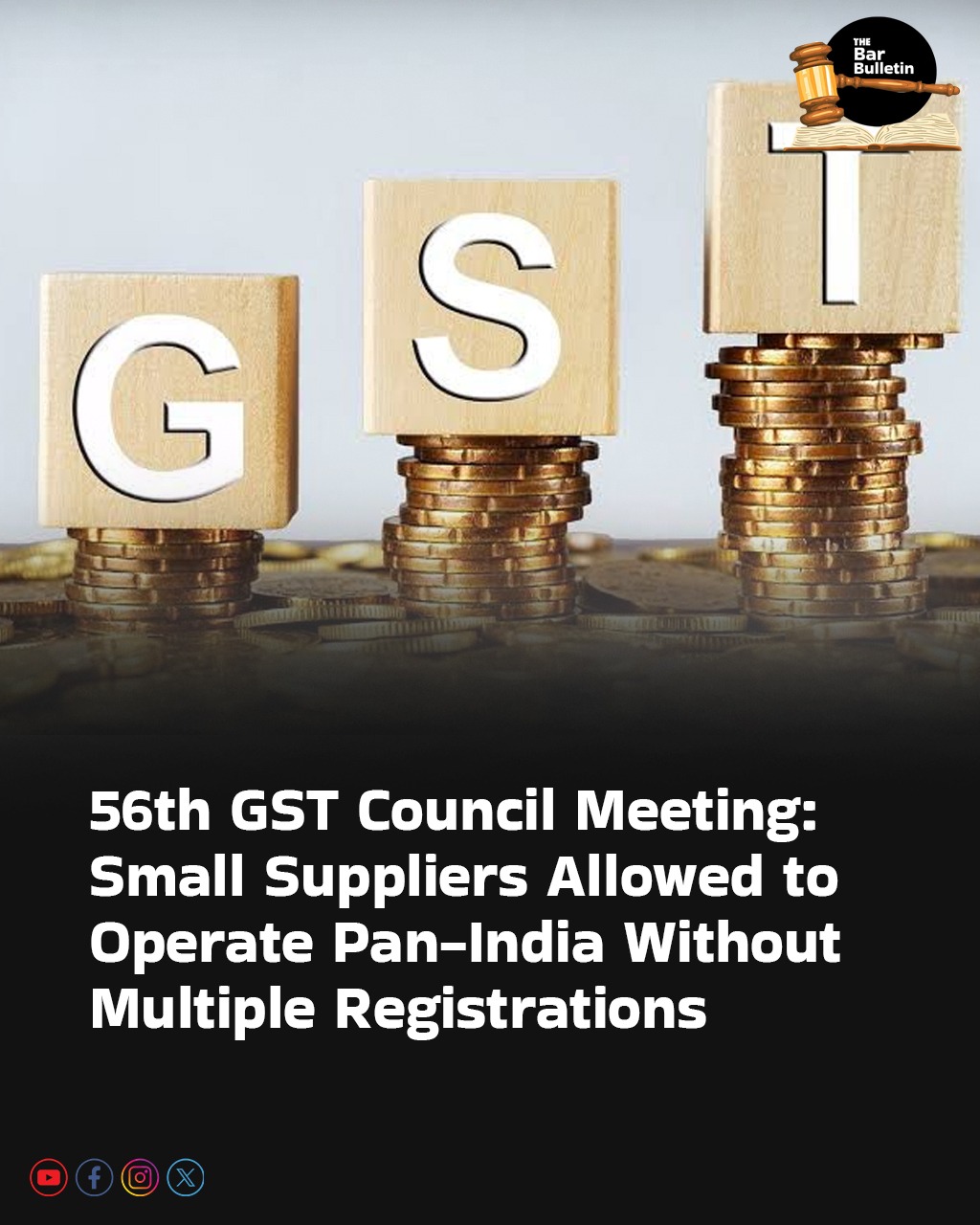The 56th GST Council meeting has shown a thin line shift towards the Marxist theory that one should not be made better off on the verge of making others worse off. The differences between the bourgeoisie and the proletariat are not new, but this time, it’s on a steep rise when the Finance Minister has announced multiple relaxations on the elastic goods, whereas, on the other hand, enhanced the levy on the inelastic goods. Apart from announcing a reduction in the GST slabs, with a focus on ease of living, correcting inverted duty structures, and supporting common citizens, farmers, labor-intensive industries, and healthcare, the Council has proposed major rate cuts.
The rates for the daily use items like soaps, shampoos, toothpaste, bicycles, noodles, chocolates, coffee, butter, ghee, and kitchenware, as well as agriculture machinery, bio-pesticides, menthol, renewable energy equipment, and the life-saving drugs, medicines, diagnostic kits, spectacles have been reduced to 5%, whereas the essential food items like paneer, breads, and milk have been completely exempt from the GST bracket. Even though goods like TVs, ACs, small cars, motorcycles ≤350cc, and washing machines are kept in the bracket of 18%, the luxury profiles like aeroplanes, yachts, high-end cars >350cc, and sin goods such as tobacco, pan masala, gutka, are to be taxed at 40%.
Additionally, the Council has approved in principle the concept of a simplified GST registration mechanism for small suppliers making supplies through e-commerce operators (ECOs) across multiple States, facing challenges in maintaining a principal place of business in each State. Since maintaining a principal place of business in each State where suppliers operate often creates huge GST compliance issues, the Council has allowed small suppliers to operate across multiple States without the need for multiple registrations, so as to increase their business base.
Moving ahead, the Council has recommended the introduction of an optional simplified GST registration scheme wherein registration shall be granted on an automated basis within three working days from the date of submission of the application in case of low-risk applicants and applicants who, based on their own assessment, determine that their output tax liability on supplies to registered persons will not exceed Rs. 2.5 lakh per month (inclusive of CGST, SGST/UTGST and IGST). The scheme will provide for voluntary opting into and withdrawal from the scheme, and it will benefit around 96% of new applicants applying for GST registration. This shall be operationalized from November 01, 2025.
The Council has also recommended the omission of clause (b) of section 13(8) of the IGST Act 2017, and after the said law amendment, the place of supply for “intermediary services” will be determined as per the default provision under section 13(2) of the IGST Act, 2017 i.e. the location of the recipient of such services. This will help Indian exporters of such services to claim export benefits. In this regime, the Council has suggested the omission of Section 15(3)(b)(i) of the CGST Act, 2017, thereby omitting the requirement of establishing the discount in terms of an agreement entered into before or at the time of such supply and specifically linking the same with relevant invoices.
Further, the Council has suggested amendment of Section 15(3)(b) of the CGST Act, 2017 to provide that a discount should be granted through a credit note issued under section 34 of the CGST Act and to correspondingly amend section 34 to include a reference to section 15(3)(b), so as to provide for reversal of Input tax credit (ITC) by the recipient in case where a post-sale discount is given and value of supply is reduced through GST Credit note.
Moving forward, the Council has proposed a sharp hike in GST rates on entry tickets to casinos, race clubs, and sporting events like the Indian Premier League (IPL), from the existing 28% to 40% with input tax credit (ITC).
All these proposed changes will be effective from September 22, 2025. However, the Union Finance Minister and Chairperson of the GST Council may decide the actual date of transition to the revised rates of GST approved by the Council. Also, pending requisite amendments in the CGST Act, 2017, the Central Board of Indirect Taxes and Customs (CBIC) shall administratively start implementation of the revised system of grant of 90% provisional refunds arising out of Inverted Duty structure based on data analysis and risk evaluation done by the system, as in the case of risk based provisional refunds on account of zero-rated supplies.



